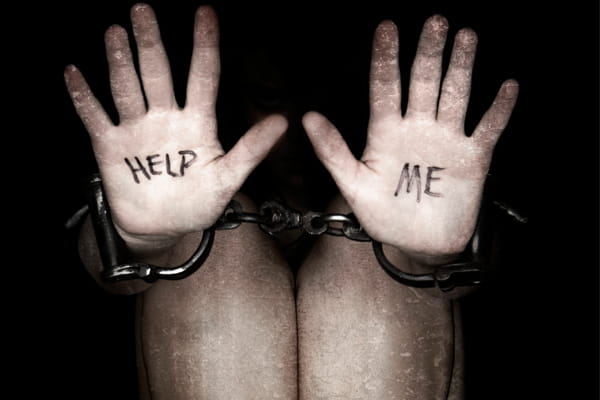Drexel Professor Aims to Increase Human Trafficking Awareness

Late last week, a Saudi princess was arrested in California for keeping a servant against her will. This week, two Canadian residents were charged with forcing a young woman into prostitution. Almost daily, a new case of human trafficking surfaces on human.globalincidentmap.com, a site that tracks incidents worldwide.
“It just keeps coming,” said Donna Sabella, a longtime mental health nurse who in February joined Drexel University from Arcadia University as assistant clinical professor and director of global studies in the College of Nursing and Health Professions.
Sabella is creating a new certificate program in human trafficking to improve awareness and teach professionals in the health sciences and other fields how to offer support when they suspect someone is being trafficked.
Human trafficking is difficult to quantify or verify, but a 2005 report by the International Labour Organisation pegs the trade of humans into forced sex or labor as a $32 billion underground industry, second only to the illegal drug trade.
Yet Sabella said awareness of the problem, especially among the public, has been slow in coming.
“Our government is finally enacting laws and penalties and operationalizing what human trafficking is,” Sabella said. “If it’s come to the government’s attention, it must be pretty bad.”
When few were taking notice of the problem, Sabella was trying to solve it.
Eight years ago, Sabella worked as a therapist for an agency that counseled women with mental health issues and addiction. Prostitution was often the last thing a woman would admit to, and only after many sessions. Prostitution is viewed by many as a form of sexual exploitation meeting the human trafficking criteria of force, fraud or deception, particularly when it involves minors.
“You have to be trained to listen dangerously, because your jaw will drop and once they see you have a negative reaction, they stop talking,” Sabella said.
Sabella searched for programs for the women in Philadelphia and found none. But she learned of a safe house for trafficked and prostituted women in Phoenix called DIGNITY.
The director of the program, herself a former prostitute, invited Sabella to visit. She told Sabella: “I’ll give you the address, and if you don’t like it, you have the return ticket.”
“This wonderful woman opened the door, and I thought, ‘I’m face to face with this now,’” Sabella recalled. “She gave me a hug and welcomed me in and said, ‘What can we do to help you?’ and I saw right away, this is going to be great.”
“That was some pretty powerful stuff,” Sabella said of the experience. “I know one woman who had her eyes glued shut with crazy glue. You have to have the stomach for this. Almost every woman has horror stories, and the ones who don’t have horror stories are dead.”
Back in Philadelphia, Sabella helped to create a residential treatment house modeled after DIGNITY called Dawn’s Place, and became its first program director. Four years ago, she extended her outreach by holding group sessions in local jails.
Sabella has seen great successes. “One of the women I worked with in my research is now getting her doctorate,” she said. “People I interviewed for my dissertation are working, they’re going back to school, some are married and have children.”
She said anyone who wants to get involved can start educating themselves with government information online, documentaries and books, or by contacting her for a reading list. “But don’t watch Hollywood movies,” she said.
Sabella currently teaches a course on human trafficking that trains students to work with victims. This fall, she'll file a proposal for a three-course certificate program in human trafficking through CNHP that will be open initially to people in the health sciences and, she hopes, eventually also to people outside the college. Sabella also hopes to supplement coursework with opportunities for students to work with victims and agencies in the United States and abroad.
For more about the study of human trafficking, contact Sabella at donna.sabella@drexel.edu.
In This Article
Drexel News is produced by
University Marketing and Communications.
